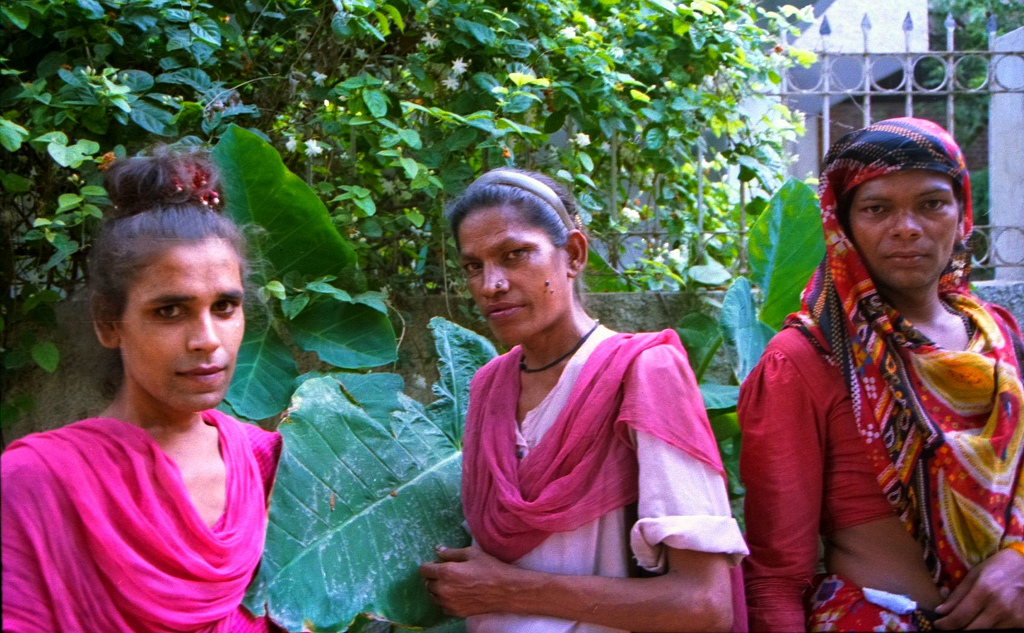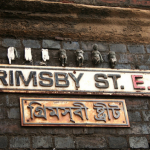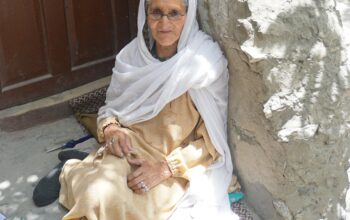When I was small, my mum and dad read books to me about families with two dads or with one mum who were just as normal as ours. I was taught to accept everyone equally, no matter what their race, religion, gender or sexual orientation is. My time in Bangladesh showed me, how far I still am from this ideal. I came there for one year to work as a volunteer for an NGO in the North-Western part of the country. My self-perception of being open and tolerant got shaken right from the start.
I arrived in Bangladesh’s capital Dhaka, a bustling 20 Million city. I was overwhelmed, never having been in a comparable metropole before. We volunteers were taken to explore the city, the ancient monuments, the shopping streets and parks. We walked around the Dhanmondi Lake, on lovely paths made for the recreation of the urban middle class. I noticed a lot of new, different things about the people around me, but what bothered me most were the male couples. They were walking by with fingers intertwined, teasing and leaning on to each other. I could not help watching them with irritation and confused giggles. I never saw men being so tender with each other in public and I immediately assumed that they were homosexual. Why would men hold hands otherwise?
In my rural district of Germany, this behaviour was considered appropriate for heterosexual couples and for girls. Gay was a common insult and the boys would only act affectionate to joke around. The serious greetings were fist bumps and body checks. Hugging, cuddling and going hand in hand was girly. The gender roles defining how boys and girls ought to behave were very rigid in my head and the physical display of male affection in Bangladesh shocked me.
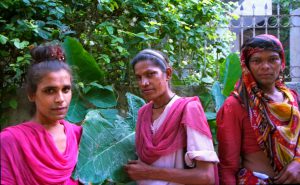 For the first time, I became painfully aware of my own homophobia hidden under all the liberal support for the rights of sexual minorities. It was necessary for me to leave my own culture, to realise that these roles were not natural, biologically determined behaviour but constructed and taught by society. Bangladesh, just like Germany, has rigidly defined gender roles, but along different lines. Since I am unfamiliar with the Bangladeshi constructions, they enabled me to question the German gender roles that I always took for granted. Over time, I got used to cuddling men and stopped turning my head after them. Beside me, nobody interpreted their behaviour as sexual or strange.
For the first time, I became painfully aware of my own homophobia hidden under all the liberal support for the rights of sexual minorities. It was necessary for me to leave my own culture, to realise that these roles were not natural, biologically determined behaviour but constructed and taught by society. Bangladesh, just like Germany, has rigidly defined gender roles, but along different lines. Since I am unfamiliar with the Bangladeshi constructions, they enabled me to question the German gender roles that I always took for granted. Over time, I got used to cuddling men and stopped turning my head after them. Beside me, nobody interpreted their behaviour as sexual or strange.
Hijras, who got accepted as Third gender by the Bangladeshi government in 2013, were the people who made me question my ideas about gender. The sexual minority identifies as intersexual and they face a lot of discrimination and constraints in their daily lives in Bangladesh. Their existence does not uproot the Bangladeshi gender roles. Rather, the Third gender has had a limited place and assigned tasks in South Asian society since 300 A.D. Compared to sexual minorities in Germany, the 10,000 Hijras of Bangladesh are very visible in public, mostly by chatting up people for money. The common explanation from my colleagues and friends was that Hijras were obviously unfit for work and therefore needed to be supported by the society. In my German society the Third gender is not established and assigned a clear role. Because I was not accustomed to the gender role they fulfilled, I could not predict the Hijras’ actions and they made me feel insecure. I really wished I could have taken them like my Bangladeshi friends who were familiar and at ease with their behaviour. Instead of being scared, they were joking around with the Hijras. Once more, I had to adjust my previous idea about two clearly defined sexes
But of course, the Bangladeshi society is not perfect when it comes to rights of sexual minorities. In fact, it is terrible. Gender Roles might be different from Germany, but they exist and limit people nevertheless. Hijras got accepted as a Third gender, but they are still forbidden to have relationships with each other. The section 377, introduced by the British colonial rulers in 1860, punishes all “unnatural” sexual behaviour with up to ten years in prison. Several attempts to get rid of the section 377 by activist groups were fruitless. The government does not want to grant sexual minorities their human right because that would be in conflict with the values of the majority population. Homosexuality remains a taboo in society. In spite of the government’s and the society’s repressions, mostly gay men have been able to form a community with help of the internet. “Boys of Bangladesh” is the most famous site, organising trainings and secret meetings. The Hijras as well have organisations demanding for the Third gender to be accepted as equal citizens with equal access to the labour market and health care.
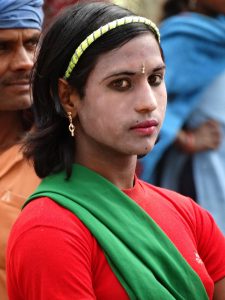 The discrimination against the few Bangladeshis who openly live and defend their sexuality against the norm, has peaked in the murder of two activists for gay rights. On the 25 April 2016, five men stormed into the apartment of Xulhas Mannan in Dhaka. He was the editor of Bangladesh’s first LGBT magazine “Roopbaan”. They stabbed him and his friend Mahbub Rabbi Tonoy to death and managed to escape. Responsibility for the attacks was later claimed by Ansar-al-Islam, a group associated with Al- Qaida. Mannan had received death threats for wanting to organise a LGBT rally at the big festivities of the Bangla New Year earlier in April. The rally was suspended for security reasons and the Prime Minister Sheikh Hasina criticised Mannan for adultery in his writings.
The discrimination against the few Bangladeshis who openly live and defend their sexuality against the norm, has peaked in the murder of two activists for gay rights. On the 25 April 2016, five men stormed into the apartment of Xulhas Mannan in Dhaka. He was the editor of Bangladesh’s first LGBT magazine “Roopbaan”. They stabbed him and his friend Mahbub Rabbi Tonoy to death and managed to escape. Responsibility for the attacks was later claimed by Ansar-al-Islam, a group associated with Al- Qaida. Mannan had received death threats for wanting to organise a LGBT rally at the big festivities of the Bangla New Year earlier in April. The rally was suspended for security reasons and the Prime Minister Sheikh Hasina criticised Mannan for adultery in his writings.
The LGBTI community agrees that the attack on Mannan cannot be blamed only on the extremism of Ansar-al-Islam. The murder took place in an environment of dominant ideas about gender and sex that are harming sexual minorities. It hurts me to hear about this terrible crime being committed in Bangladesh. But now it is important for me to stay away from old, Eurocentric stereotypes about the Global South that does not get human rights, asking: “In what kind of backward country is this possible?” I have to remember, that Bangladesh is also the country which opened my mind to new approaches to gender roles. The murder of Mannan and Tonoy should remind everyone of us to learn from each other and work together for a pluralist world, where different ideas on sex and gender can exist next to each other. To reach this aim Germany has just as much to learn from Bangladesh as the other way around.
By Emilia Henkel
Image credit:
Picture 1: Adam Jones, licensed under CC BY-SA 2.0
Picture 2: R Barraez D´Lucca, licensed under CC BY 2.0
